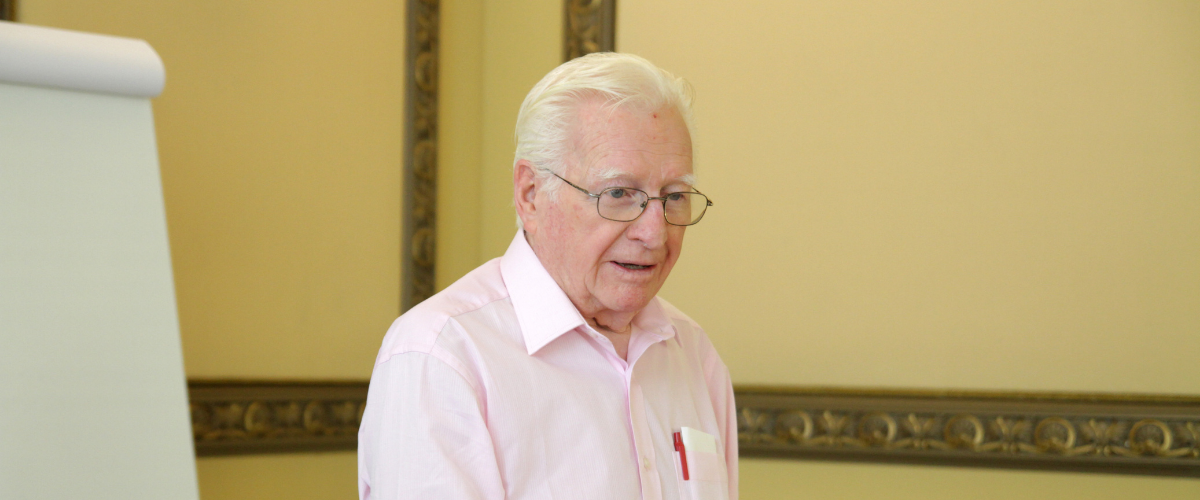Luís Guastavino, the dean of Latin American regionalism, died

On December 28, just the day before his 90th birthday, Luís Guastavino died in Ñuñoa, Metropolitan region of Santiago de Chile. Guastavino was director of Escolagi, an important figure in the politics of that country, a key man in the consolidation of ORU Fogar in Latin America and, above all, a convinced apostle of the regional cause.
A member of the Communist Party of Chile, a man very close to Salvador Allende, he was a deputy for Valparaíso from 1965 to 1973. Exiled during the Pinochet dictatorship, he lived in Europe working for the United Nations and UNESCO. Returned to Chile and after leaving the Communist Party, he was a firm supporter of avoiding political extremism that generates conflicts and became a convinced militant in favour of decentralization. In 1992 he organized the international seminar "Decentralization and regionalization: Chile, Spain, Italy and Sweden".
In April 2003, President Ricardo Lagos appointed him as regional president of Valparaíso, a responsibility he held until March 2006. From this position, he promoted the Latin American Organization of Intermediate Governments OLAGI. Thus, in 2004 and in Guayaquil, Ecuador, under the patronage of CONGOPE, chaired by Jorge Marún, Guastavino was elected the first president of OLAGI.
From the OLAGI presidency he defended the establishment of regional governments with a high level of political and financial autonomy. It fought centralism and promoted the self-esteem of the territories. “The centralism in the continent,” he explained, “is partly the fault of the Regions themselves, which do not assume a decisive role or a bold, creative and innovative attitude. Due to an old and deeply rooted mentality, its authorities always wait for everything to come from the centre”. Thus, he was a firm supporter of regional and cross-border integration policies and, especially, of the participation of the regions in international networks.
From OLAGI, he generated multiple relationships within Latin America. His relation to the Ibero-American Development Bank, it made it possible for the regions to apply for credit policies. After leaving the presidency, all his energy was poured into EscOLAGI, a school for the training of public managers of regional governments, with the complicity of a network of Latin American universities interested in promoting integration and development policies.
In 2007 Guastavino was key to the participation of regional governments of Latin America in the foundation of ORU Fogar in Marseille. With an extraordinary relationship with Michel Vauzelle, president of ORU Fogar and the Provence-Alpes-Côte d'Azur Regional Council, he was the promoter of the 1st Summit of Regions on Food Security that was held in Dakar in 2010. Guastavino and Vauzelle were also the ones who, in 2012, they sponsored Paúl Carrasco, the Ecuadorian prefect of Azuay, to become president of ORU Fogar.
When Paúl Carrasco remembers Luís Guastavino, he underlines his tolerant disposition and his condition as a man of both reflection and action. "The Chilean experience - he says - made him see that extremism on the left encouraged extremism on the right and that both led to conflict." His tolerance not only led him to preach the need to find meeting points in Chile, "he was also -explains Carrasco- a man who, being a Pan-Americanist, defended diversity." For whom he was president of ORU Fogar from 2012 to 2016, Guastavino was the first apostle of regionalism in Latin America. "In the nineties, but also during the first decade of this century, at the age of seventy, he deployed enormous activity to promote regionalism".








































































